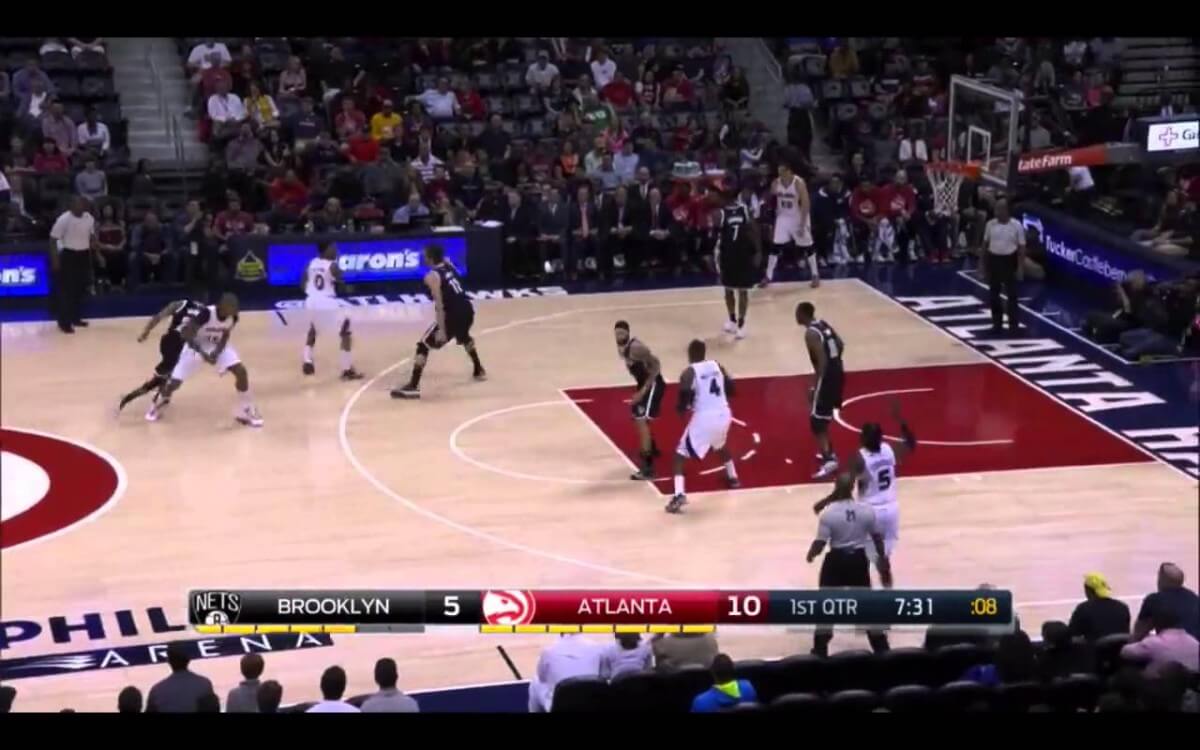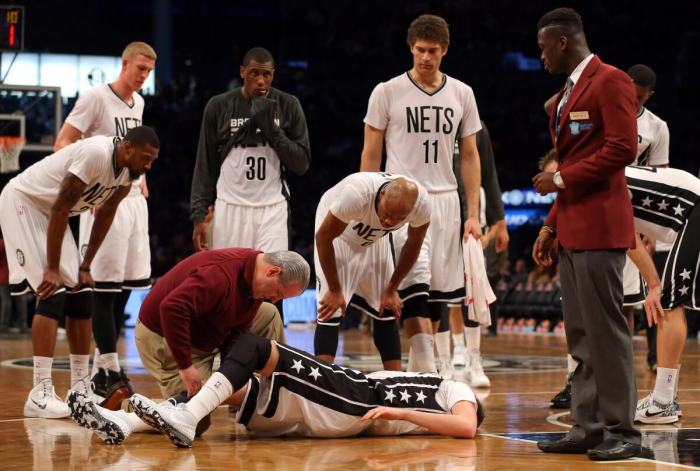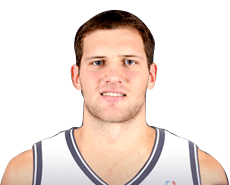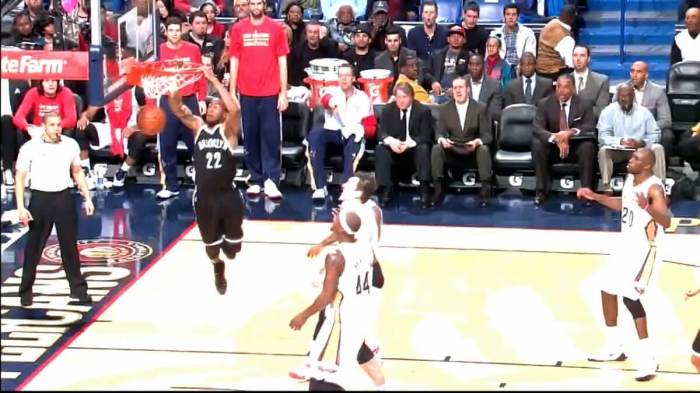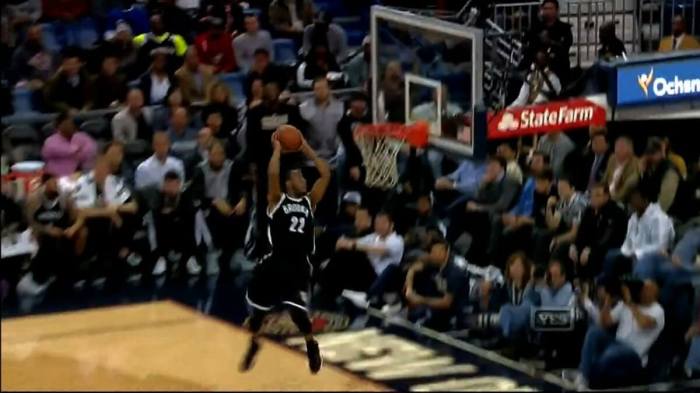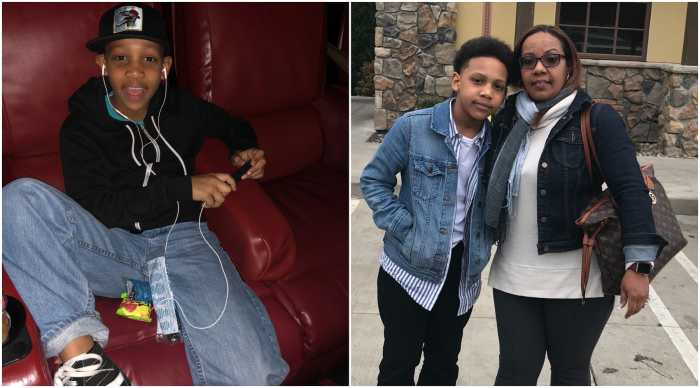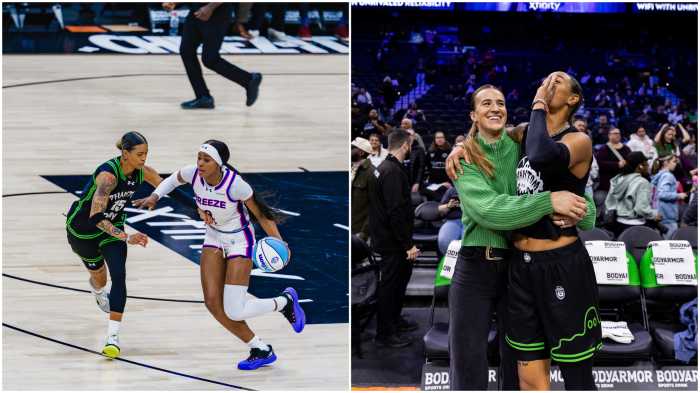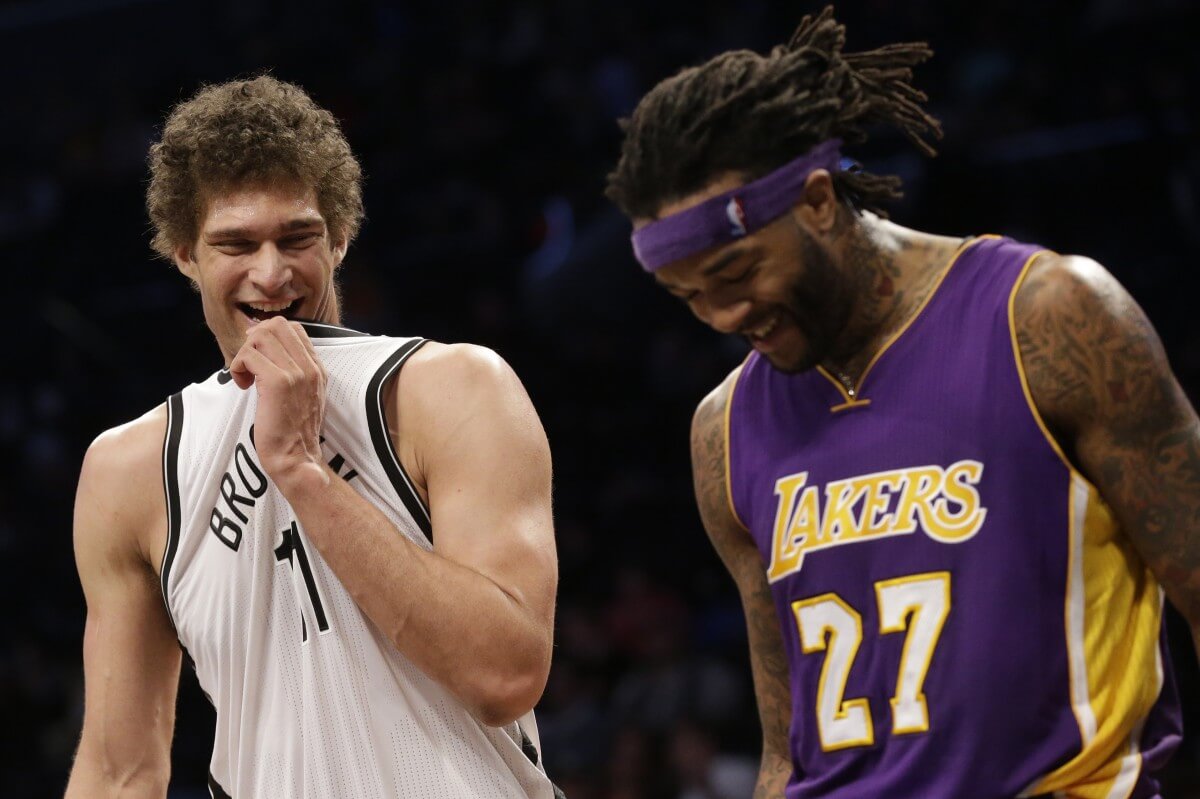
We’ll have much more in the way of a playoff preview in the coming few days. In the meantime, here’s Part I of our Nets regular season awards.
Nets MVP: Brook Lopez
72 G, 44 GS, 29.2 MPG, 17.2 PPG, 7.4 RPG, 0.7 APG, 0.6 SPG, 1.8 BPG, .513 FG%, .100 3P%, .814 FT%, .558 TS%
Disclosure: I went back and forth between Lopez and Thaddeus Young many times during this exercise, so allow me to make the case for Young for a second.
The conversation about the term “valuable” in “most valuable player” changes on a second-by-second basis. Ask 30 voters how they define “valuable” and you’ll get 35 subtly different answers, landing on a sliding scale somewhere between “best player on the best team,” “biggest individual impact on his team,” “best overall numbers,” and “most exciting.” In this context, I’m looking to answer the question: “who put the Nets in the best position to compete, night in and night out?”
Despite his limited time with the team — Young played in fewer games and minutes than Brook Lopez — Young’s ability to run the pick-and-roll, dive to the basket, space the floor, and defend away from the rim opened the floor for Lopez, who leveraged his new freedom and a seemingly healthier foot into multiple 30-point games and back-to-back Player of the Week Awards during the team’s season-best 10-2 stretch. There was never any concern about Young’s energy level or impact, and the team’s sudden post-break surge cannot be extricated from his arrival.
But after much self-deliberation, Lopez’s rebounding and shotblocking were his alone, not Young’s,[note]You could even argue that Lopez’s rebounds went up because Young was not a particularly good rebounder: opponents grabbed way more rebounds when Young was on the bench. That doesn’t really boost Lopez’s case, but it hurts Young’s more.[/note] he figured out that he could float eight-footers over anyone once he got the ball in the lane, that Deron Williams can still pass out of the pick-and-roll as well as anyone, quit the “pick-and-stick” and started ranging out in the paint for easy layups and put-backs. On the defensive end, Lopez maintained his status as an average rim protector who’s not quick enough to switch around: opponents shot 55.1 percent against Lopez on shots within six feet, well below the league average.[note]League average on shots defended inside six feet is a tick under 60 percent.[/note]
Lopez was not dominant throughout the year, and his difficulty meshing with Lionel Hollins doesn’t play in his favor. It got bad enough that Lopez was benched in favor of Mason Plumlee, who played over his head for two months before falling back to earth, and Lopez hardly looked like a dominant scorer in the season’s last few games. He can fall too much in love with his shaky outside shot, and his passing out of double-teams has always been suspect. But Hollins admitted he had a specific way he wanted to play Lopez early in the season that Lopez wasn’t comfortable with, and once the two came to an understanding, Lopez took off, quickly re-gaining his starting spot and looking strongest when the Nets needed to climb back into the race.
Deron Williams also had a case for the team MVP award — despite his many struggles and criticisms league-wide, he still had by far the team’s best on-court off-court numbers. But those numbers were partially skewed because the lion’s share of his replacement minutes were played by Jarrett Jack, who led a Nets offense that scored 99 points per 100 possessions when he was on the floor. The team has performed solidly with Williams on the floor, but it’s hard to dole out a team MVP award to a guy who’s just finished the least productive season of his career.
Runner-up: Thaddeus Young
Nets Defensive Player of the Year: Alan Anderson
74 G, 19 GS, 0.8 SPG, 0.1 BPG, 101.3 DRtg, .308 3PA%[note]3-point percentage allowed as the primary defender, via NBA.com.[/note]
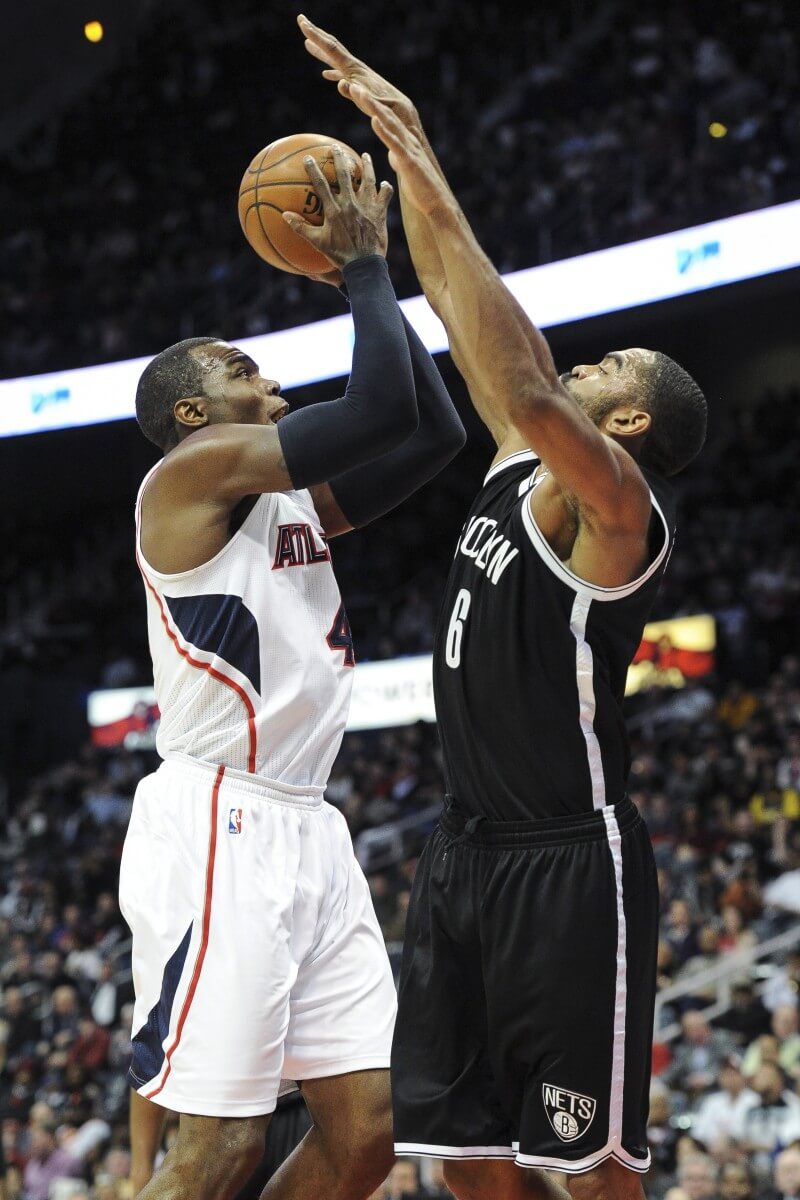
But Lopez was the average anchor of a bottom-seven defense. He rarely had to stray from the rim, even occasionally “cross-switching” with Young on screen plays like they did with Reggie Evans two seasons ago. When he did, it was often a nightmare. His success in post-up situations means less and less in a league that’s sprinting away from back-to-the-basket bigs, and the NBA has evolved athletically to a point where it’s hard to imagine a player like Lopez ever becoming a dominating night-in-and-night-out defender.
Enter Anderson, who emerged as the team’s finest perimeter defender over the course of the year. Yes, I know Markel Brown is the people’s choice for this award, and to his credit, Brown is hands down the team’s best on-ball perimeter defender at this point; he’s jaw-droppingly athletic, to the point where he can legitimately fall down, regain his footing, stay in front of a point guard, take a forearm shiver from a power forward, and stay with the play:
But Brown still struggles with positioning off the ball and maneuvering around screens, two things Anderson does very well, and Anderson’s enough of a smart on-ball defender to make up for the insane breathing room Brown’s afforded by his bounce. The team allowed 101.3 points per 100 possessions with Anderson on the floor, the best of any Nets rotation player on the season, and teams struggled to hit perimeter looks with Anderson on the floor. It wasn’t much, but on a team that lacked defense, it was more than enough.
Runner-up: Markel Brown
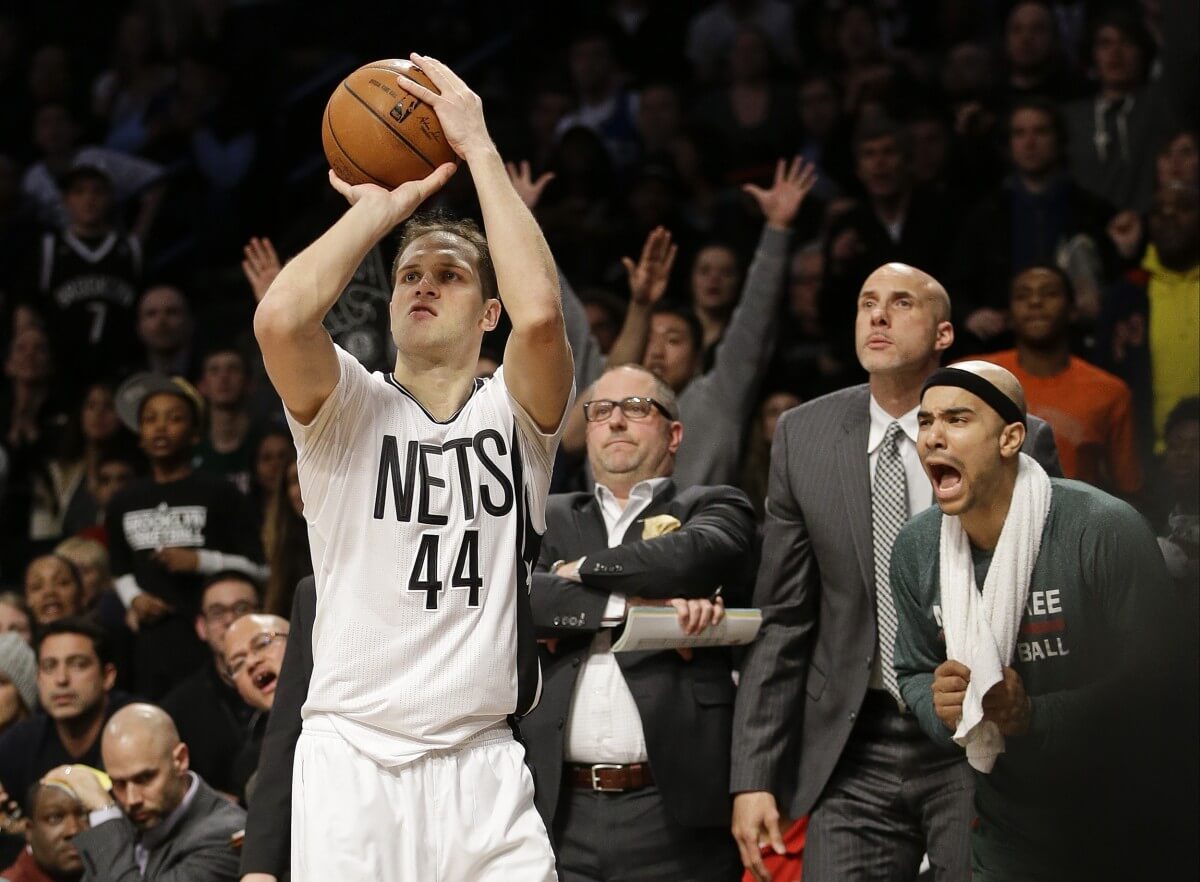
Nets Sixth Man Of The Year: Bojan Bogdanovic
78 G, 28 GS, 23.8 MPG, 9.0 PPG, 2.7 RPG, 0.9 APG, 0.4 SPG, 0.1 BPG, .443 FG%, .355 3PT%, .821 FT%, .562 TS%
Bogdanovic started the season in the starting lineup but wasn’t ready for the sustained minutes early in the season, falling into a backup spot after the first 19 games. Bogdanovic became noticeably more comfortable as the season wore on, peaking in the last game of the season with a 28-point performance that helped save the Nets from playoff doom.
His shot selection and feel for the NBA game improved substantially from his first few days, and he was good for at least one sneaky back-cut for a layup per game.
Runner-up: Alan Anderson
Rookie Of The Year: Bojan Bogdanovic
See above. Cory Jefferson could have had a legitimate claim to this had he played more than garbage time minutes for most of the season, and Brown would’ve walked away with it had he developed a perimeter shot during the season. But Bogdanovic earned the minutes by the end of the season as Brown became a starter in name only: Bogdanovic would routinely start the second half over Brown once the season was over.
Runner-up: Markel Brown
Stay tuned for Part II, giving out more various individual awards and top moments.

